Alex Casey talks to the makers of of one of our longest-running TV series about its enduring popularity both here and overseas.
Border Patrol is like a contraband box of chocolates – you never know what you’re going to get. It might be a festering horse head, a Latvian national declaring that he is here to start a new country, or a middle-aged woman with a suitcase lining laced with $800,000 worth of cocaine. There could be a man with suspiciously wet cargo pants, later revealed to be smuggling dozens of tropical fish under his clothes, or a Canadian woman who brought a live cat in her carry-on. Whatever episode you watch, one thing is for sure: someone is going to get busted.
It’s been 22 years and 150 episodes since the observational documentary series debuted on our screens, capturing all manner of characters and contraband arriving on our shores. With Aotearoa boasting some of the strictest biosecurity measures in the world, our version of Border Patrol is currently airing in over 40 different countries, including Poland, Brazil, Holland, Belgium, Italy, Spain, the UK, the US, and pretty much the entire continent of Africa. Just like Popstars before it, Border Patrol was a quiet world-first that helped launched a whole genre of spinoff shows.
Rachel Antony, CEO of Greenstone TV, was an assistant at Cream TV (later acquired by Greenstone) when the idea for Border Patrol was conceived by then-CEO Nigel Snowden in 2001. The company was already making the observational documentary series Motorway Patrol, which had shown the potential in putting real New Zealanders in real situations on screen. “There was sometimes real jeopardy, but there were also just such good characters,” recalls Antony. “Human beings are endlessly interesting, and people do dumb shit all the time.”
As well as being fascinating character studies, these early 2000s observational documentary series were also a way to “smuggle” documentary into primetime entertainment slots, and educate the public while also entertaining them. “New Zealand was really among one of the first countries in the world to be doing this kind of observational documentary,” says Antony. “So there was a lot of time spent building relationships and trust with the different agencies, while still ensuring that editorial control and integrity rested with the producer.”
The way they filmed Border Patrol back then remains the way they film it today – an OPC, or one person crew, doing an extraordinary number of things at once. “They operate the camera, they do sound, they have to think on their feet about what is happening and persuade people who are camera shy to be on the show,” says Jani Alexander, current producer of Border Patrol. “They are doing a lot.” It also means that the crew is “low intrusion”, Antony adds, making as little impact as possible in an environment where people are often arriving tired and stressed.
While the air cargo team can flag suspicious packages in advance for the Border Patrol crew, shooting at Auckland Airport customs largely remains a “total lottery”, says Antony. “We shoot a high volume of content, because we never know what flight, or what day, or what person is going to turn into a story.” The last season took 180 shoot days to get just over 40 stories. “Sometimes we will film for a couple of weeks and come back with absolutely nothing,” laughs Alexander. “Then suddenly you’ll get three great stories in a day.”
And even if there’s a great story to be found, the subjects involved must still consent to being filmed and their misdemeanours being broadcast. “We had a funny situation with a guy who called us because he saw the signs that we were filming and was really worried because he was with his mistress,” says Antony. “He didn’t want to be seen on TV with a woman that was not his wife.” As for the people who are directly approached to appear on camera, Alexander says it is about a 50/50 split between those who consent and those who don’t.
From the very first Border Patrol episode in 2002, they knew they had made a hit. “It was immediately getting really big numbers, at least 40% of the audience share which would have been around 700,000 viewers,” says Antony. While television numbers have plummeted overall, Border Patrol has continued to retain the same share of audiences, even two decades later. “People love seeing other people getting busted, but they also feel good about themselves because they learned something and feel smarter by the end of it.”
In the early 2000s, Border Patrol also served another purpose. “You have to remember this was over 20 years ago, so seeing New Zealanders on screen, outside of a scripted series, was way less common,” says Antony. “There weren’t many New Zealand shows that featured someone who could be you, or your neighbour, which I think was a huge part of the appeal.”
One of those hundreds of thousands of people watching Border Patrol in the early 2000s was food writer and Ate Ate Ate podcast host Jean Teng, who had recently immigrated to New Zealand with her family from Malaysia. “You’d watch it with glee because the stuff that people brought in, like oozing fresh meat, seemed really ridiculous,” she recalls. “I remember my dad exclaiming how he couldn’t believe anyone would not declare something. There was almost a feeling of superiority in being able to differentiate yourself from them.”
It was also one of the only places she saw Asian faces on television. “Border Patrol and Kathleen from Hi-5 really kept me going through my childhood,” she laughs. But those representations didn’t always feel positive. “The show definitely presented Asian food as foreign and disgusting, which was an attitude that was much more prevalent around that time,” she says. “And because it was received in an incredulous way, it translated this idea that this kind of food, and maybe these sorts of people, weren’t something that shouldn’t be brought into New Zealand.”
This idea of Border Patrol contributing to the idea of a “national imaginary” interested Dr Sarina Pearson, an associate professor at the University of Auckland who is currently leading a research project looking at Asian communities on screen in Aotearoa. “The show gives you the impression that these visitors are foreign to the national body,” she says. “Even if they have a New Zealand passport, there’s still that difference between abstract citizenship and then cultural citizenship, and whether someone is part of the place or not.”
Pearson also points out the way that Border Patrol enlists audiences at home to become proxy border agents themselves. “There’s this idea that we’re all in this important task together and that just by watching this show, you are maintaining your vigilance on behalf of New Zealand,” she says. “Even though you see very little of New Zealand outside of the airport, you still get a real sense of this precarious, fragile environment that needs to be protected against rogue biological agents, and rogue people, at all costs.”
Antony says Greenstone has always been committed to fairness, balance and accuracy when it comes to the range of stories that they include on Border Patrol. “New Zealand is a really diverse place and our visitors are really, really diverse, and we are confident that our range of stories reflects that,” she says. “We’re not targeting certain stories, it’s literally just what’s happening in front of us.” She adds that Border Patrol has only ever received two BSA complaints in its 22 year run, neither of which were upheld.
Border Patrol has also inadvertently captured different important moments and trends in our recent history. The closing of the borders during Covid-19 saw the crew pivot to filming the process of getting PPE to our shores, and families being reunited. But Antony says the single biggest trend she’s noticed is the increased volume of drugs being caught at the border. “In the beginning, we would get excited when we found someone with two pills. Fast forward 20 years, and there’s people coming through the airport with 20 kgs of meth.”
What has stayed the same are the moments of levity, and sometimes even beauty, captured at the border. Whether it was the passenger insisting he wants to visit Kaitaia for “the nightlife”, or the indigenous American group presenting their taonga ahead of a ceremony with local iwi, Alexander, says it is a privilege to tell these stories and help to educate people both here and abroad. She tells a story about a Border Patrol producer attempting to buy a wooden trinket in Namibia, when the shopkeeper clocked onto his New Zealand accent.
“You’re not going to be able to take that home,” he scolded. “Don’t you watch Border Patrol?”
Watch Border Patrol here on TVNZ+










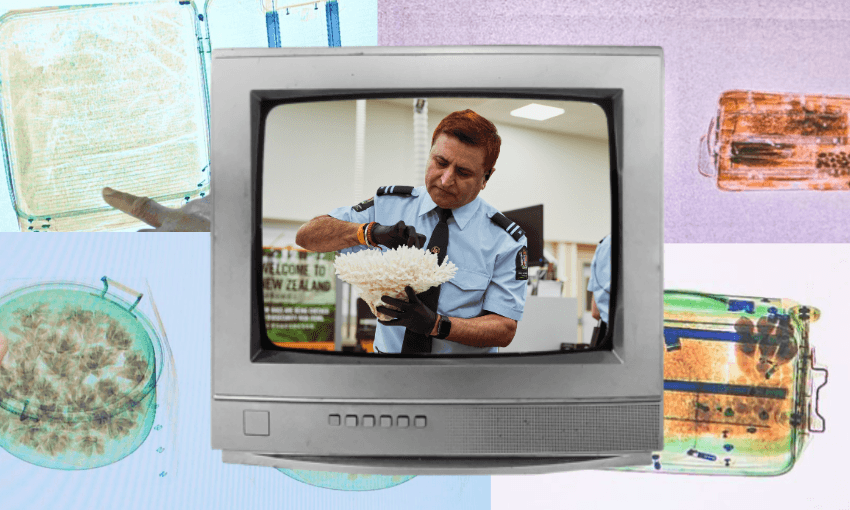
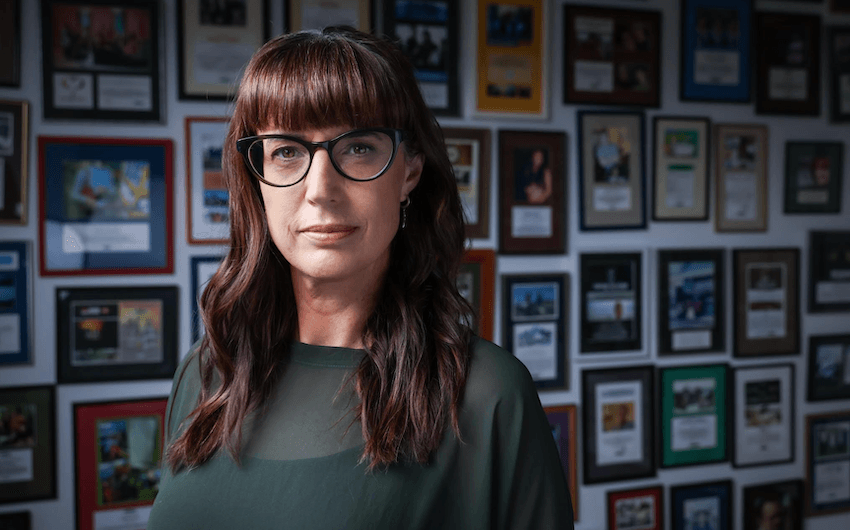
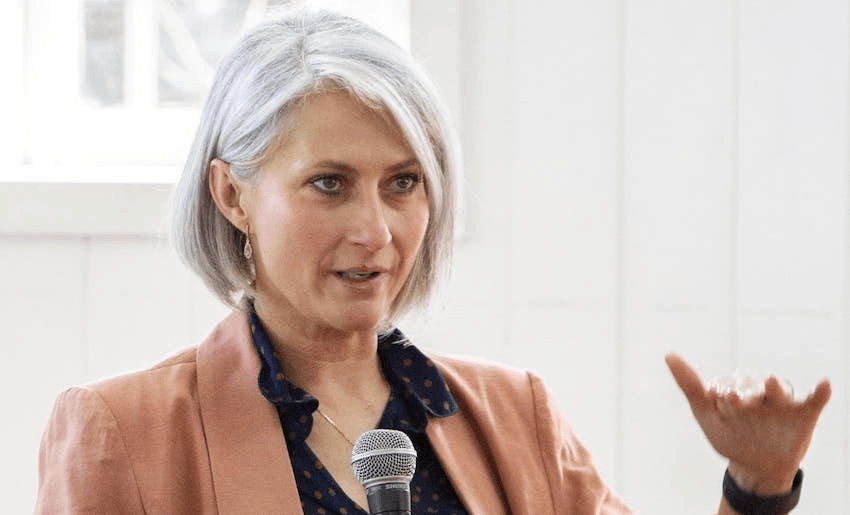
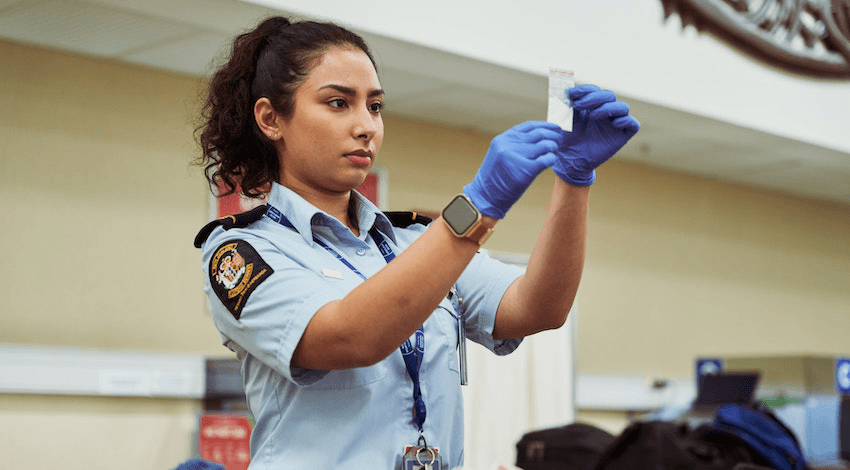
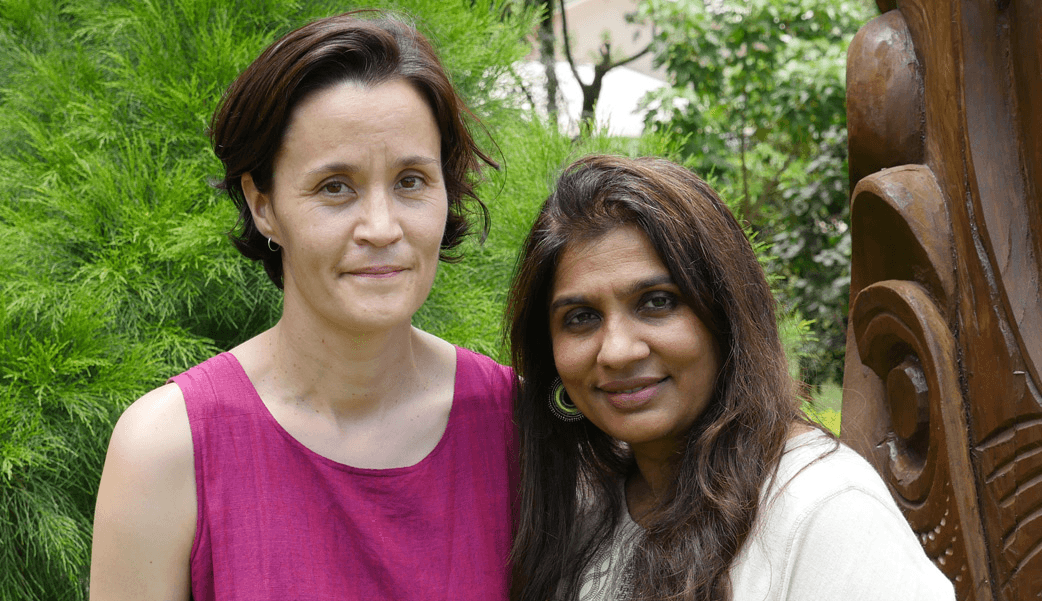
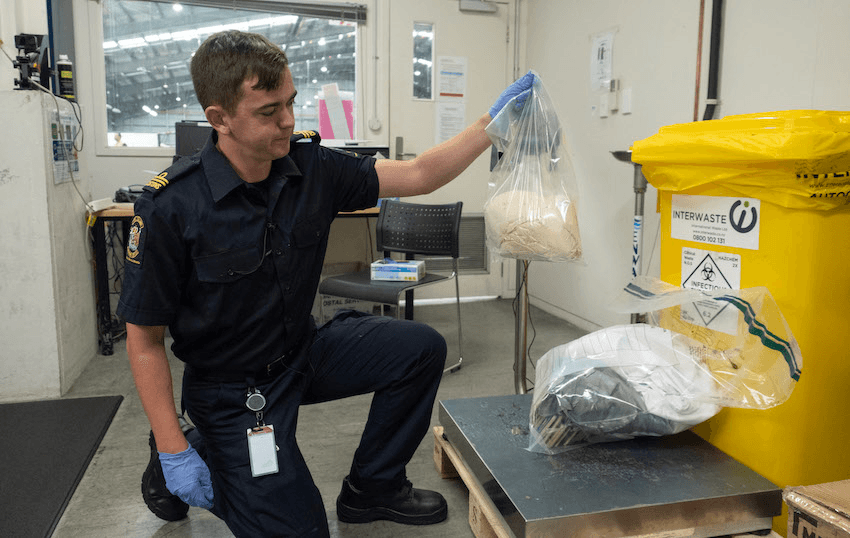
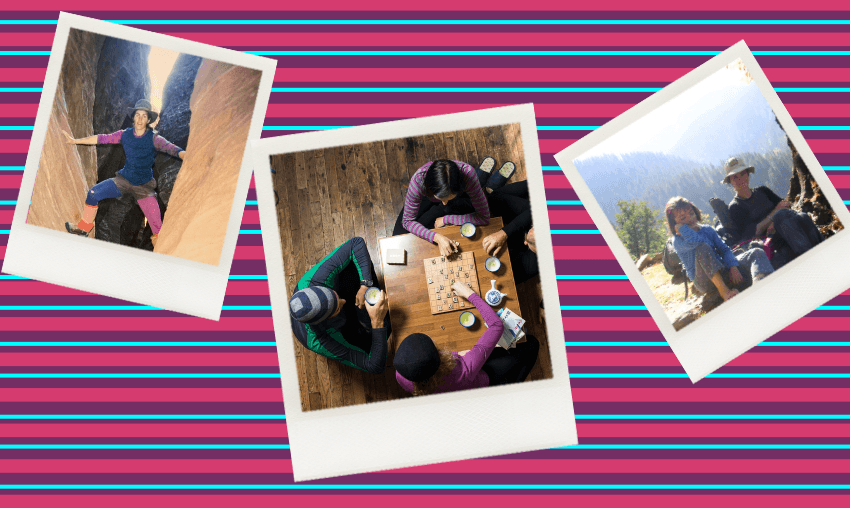

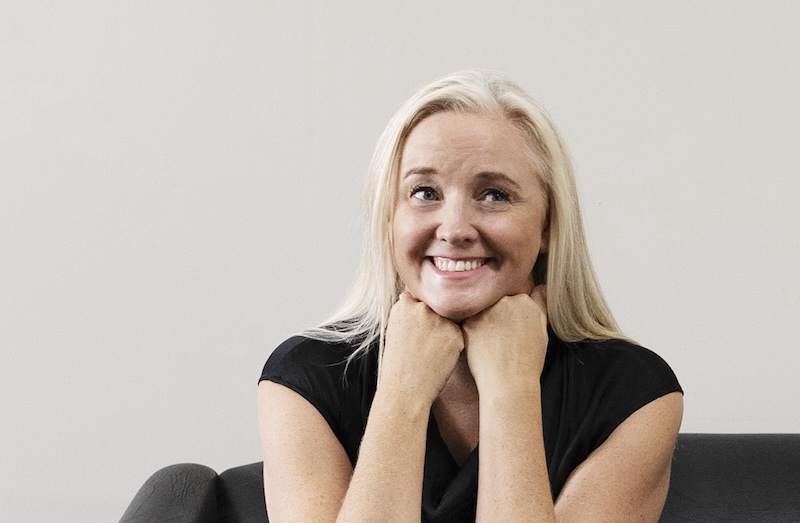
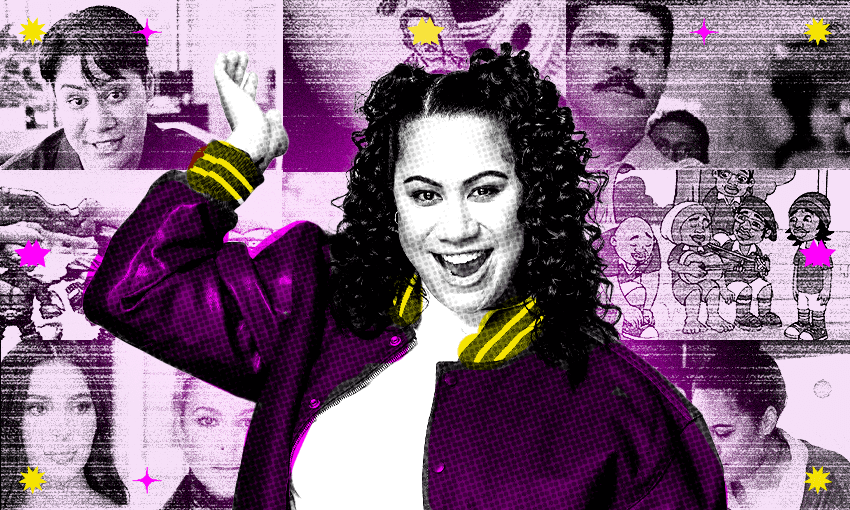



.png)


Discussion about this post